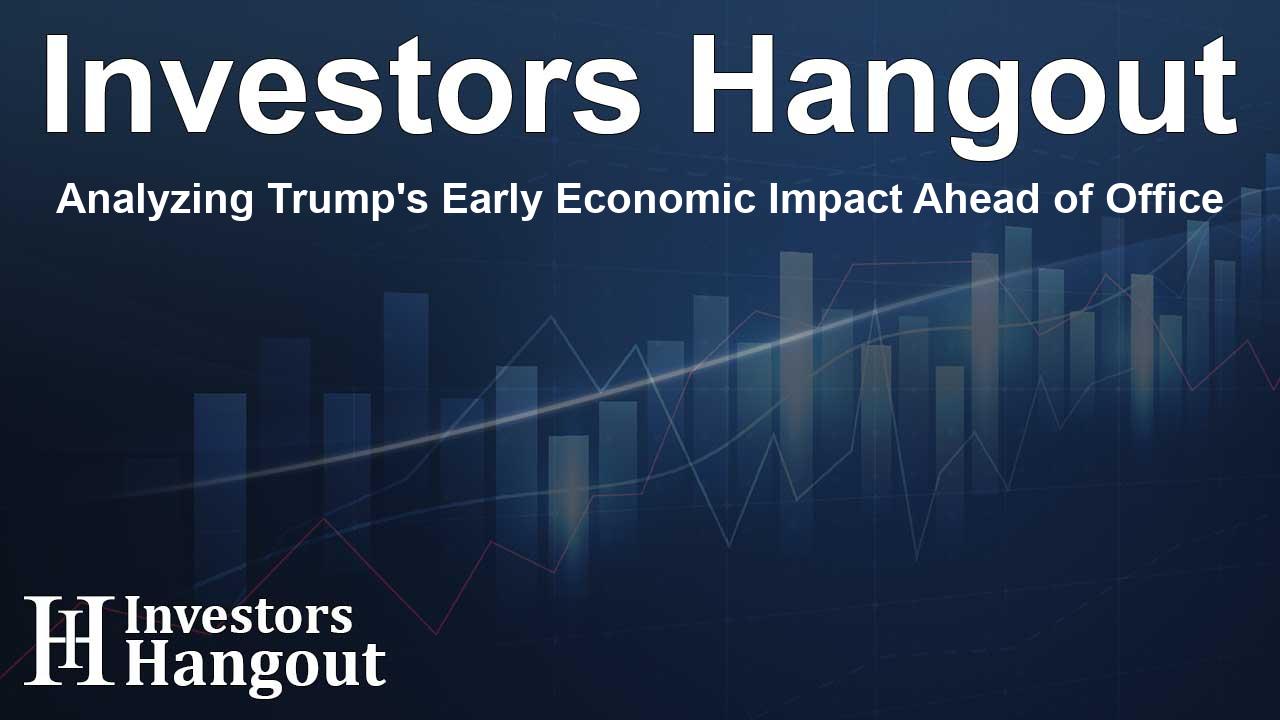Analyzing Trump's Early Economic Impact Ahead of Office

Analyzing Trump's Early Economic Impact Ahead of Office
The global economic landscape is observing significant shifts as Donald Trump's administration is set to begin. The preparations for these changes are being keenly monitored by financial officials and investors around the world. In a wave of uncertainty, central banks are already adjusting their strategies as they anticipate the policy shifts that Trump may bring.
Federal Reserve's Adjustments and Expectations
The Federal Reserve recently cut interest rates as expected, but many officials are now calculatedly considering the implications of Trump's possible policies on the economy. As inflation rates and interest projections are being revised, economists are focusing on how Trump's plans—ranging from higher tariffs to tax reforms—might factor into monetary decisions in the near future.
Projections of Economic Growth and Inflation
Interestingly, while the Fed is cautious about lowering borrowing costs further, there is a consensus that growth rates may rise in the upcoming year. However, this growth comes with the caveat of anticipated higher inflation. This has led to Fed Chair Jerome Powell stressing caution and consideration before making further cuts to interest rates.
During recent discussions, Powell acknowledged that some Fed officials have started to weave in Trump's potential economic impacts into their forecasting models. This reflects a broader concern about the policies under consideration, with many expressing uncertainty regarding the effects of tariffs and tax reforms.
Global Responses to U.S. Economic Policy Shifts
While the Fed is responding to the evolving economic narrative, central banks across the globe, from the European Central Bank to Canada's financial institutions, are adapting as well. For instance, the Bank of Canada has already indicated that further rate cuts may be on the horizon as they navigate through a challenging economic forecast.
Canada's Political Turmoil
An indicator of how deeply Trump's presidency is being felt is Canada’s recent political upheaval. Canadian Finance Minister Chrystia Freeland stepped down amidst controversial discussions surrounding how to respond to potential U.S. tariffs. Her resignation signals a brewing tension as officials prepare for potential economic fallout stemming from the U.S.
Freeland underscored the seriousness of the implications of Trump's tariff threats, particularly regarding cross-border trade. The Canadian government is faced with a substantial budget deficit, and the prospect of a tariff war has raised alarms among economic strategists.
Market Reactions and Future Outlook
The influence of these developments is also palpable in the cryptocurrency market, which reacted negatively to Powell's remarks about the Federal Reserve's stance on bitcoin. The Fed's inability to legally hold bitcoin, as expressed by Powell, raised concerns about the future of crypto policies and contributed to a downturn in bitcoin prices.
Conclusion: A Time of Uncertainty
As the world looks ahead to Trump's inauguration, uncertainty abounds in financial circles. Central banks and governments are in a state of recalibration, preparing for changes that could redefine economic policies on both sides of the border. The next few months will be pivotal in understanding the full scope of Trump's impact on the global economy.
Frequently Asked Questions
What economic changes are expected with Trump's presidency?
Trump's administration may introduce higher tariffs and tax reforms, impacting inflation and interest rates.
How are central banks responding to Trump's policies?
Many central banks are adjusting rate projections and preparing for heightened economic uncertainty.
What was the outcome of the Federal Reserve's recent meeting?
The Fed cut rates but suggested future cuts may be limited due to anticipated higher inflation.
How did the cryptocurrency market react?
The market faced declines following Powell's comments on the Fed's legal authority over bitcoin.
What does Freeland's resignation indicate?
It highlights the tensions and economic uncertainties linked to potential U.S. tariffs on Canadian goods.
About The Author
Contact Henry Turner privately here. Or send an email with ATTN: Henry Turner as the subject to contact@investorshangout.com.
About Investors Hangout
Investors Hangout is a leading online stock forum for financial discussion and learning, offering a wide range of free tools and resources. It draws in traders of all levels, who exchange market knowledge, investigate trading tactics, and keep an eye on industry developments in real time. Featuring financial articles, stock message boards, quotes, charts, company profiles, and live news updates. Through cooperative learning and a wealth of informational resources, it helps users from novices creating their first portfolios to experts honing their techniques. Join Investors Hangout today: https://investorshangout.com/
The content of this article is based on factual, publicly available information and does not represent legal, financial, or investment advice. Investors Hangout does not offer financial advice, and the author is not a licensed financial advisor. Consult a qualified advisor before making any financial or investment decisions based on this article. This article should not be considered advice to purchase, sell, or hold any securities or other investments. If any of the material provided here is inaccurate, please contact us for corrections.
